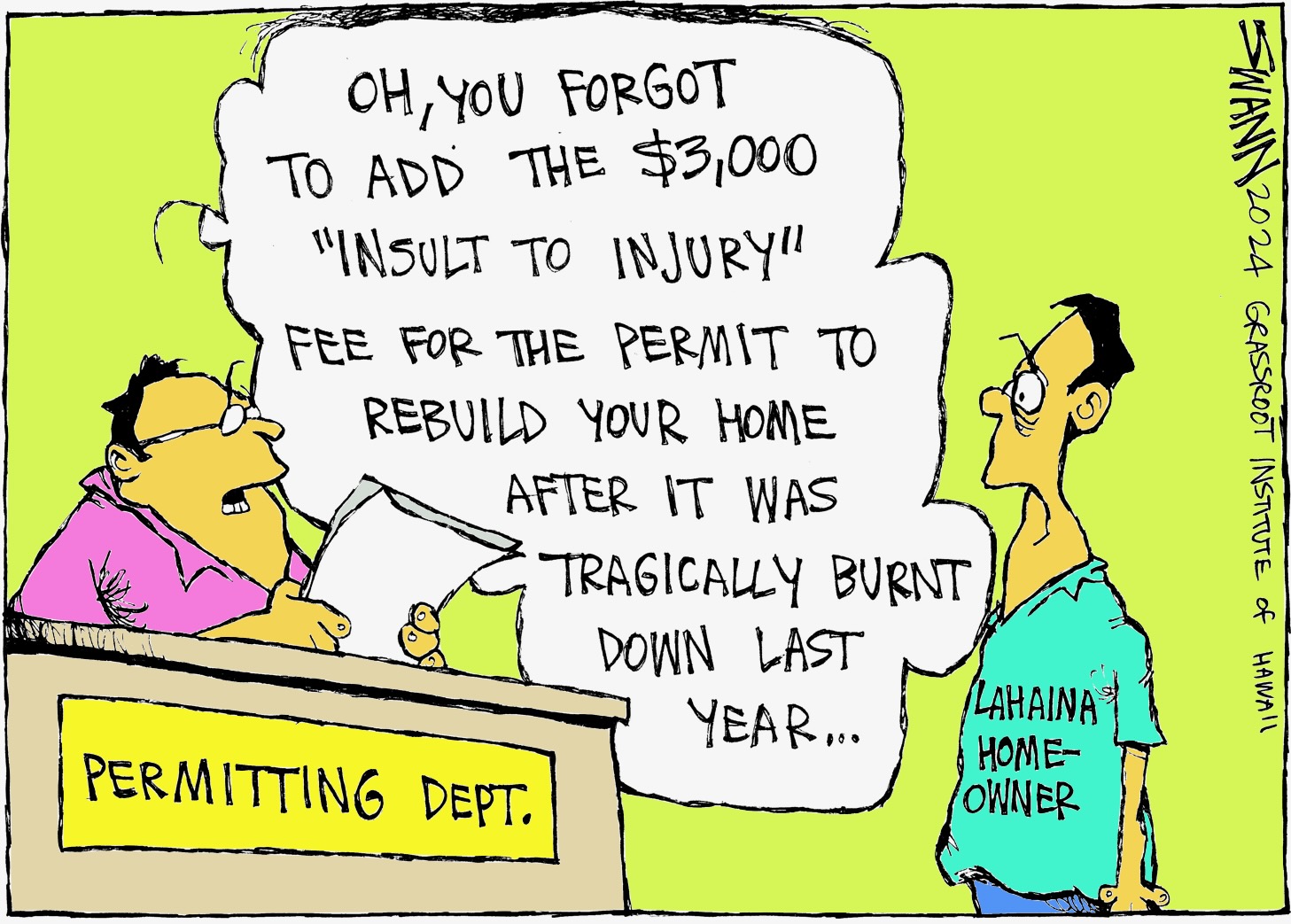
Clear away legal barriers to hasten Lahaina homebuilding
by Joe Kent, Grassroot Institute
Hawaii has a reputation for being one of the hardest states in the nation to build homes, with the blame quite rightly laid squarely at the feet of too many taxes, fees, and regulations.
The devastation of Lahaina and other parts of Maui a year ago by wildfires has put an even greater spotlight on this predicament, as regulations and fees are now making it more difficult than it should be to find housing and employment for the thousands of people who were displaced by the disaster.
One clear example is the story of the Ohana Hope Village. Just weeks after the August 2023 wildfires, Maui’s Family Life Center partnered with King’s Cathedral to build 88 temporary homes outside of Kahului.
Even after the land was cleared and homes were set up, Ohana Hope Village had to wait months to receive its county approvals.
When approval finally came through to let people live in the village, Family Life Center still had to pay more than $40,000 in permit fees to the county — a hefty, burdensome challenge for a nonprofit that relies on private donations.
Other builders on Maui have run into similar obstacles. One of the first people to get a permit to rebuild in the Lahaina burn zone did not receive it until late May — 10 months after the fires — and had to pay $2,165 in fees.
These fees might not break the bank for everyone, but they do not further the goal of helping people get their lives back on track in a quick and cost-effective manner.
Stories like these are why researchers at the Grassroot Institute of Hawaii have sent to state, federal, and Maui County officials a series of memos proposing practical actions they could take to not only speed up recovery efforts in Lahaina but make it easier to build homes on Maui in general.
Grassroot’s latest policy brief, “Six ways to speed up recovery and rebuilding efforts in Lahaina,” was issued earlier this month. It builds on suggestions Grassroot made in January and recommends that lawmakers:
>> Waive building permit fees for the rebuilding of destroyed housing or construction of new temporary housing.
>> Waive special management area fees and create an expedited process for approving SMA permits.
>> Allow nonconforming buildings to be reconstructed and nonconforming uses to be restored.
>> Emphasize existing laws that provide liability protections for the county and builders of temporary housing.
>> Grant nonprofit builders exemptions from certain county zoning and building rules through a “Yes, in God’s backyard” law, as urged by the 2024 Legislature’s House Concurrent Resolution 122.
>> Allow more dwellings in residential zones.
Among the recommendations suggested in January:
>> Exempt from the state and county general excise and transient accommodations taxes any monies landlords are paid by the state, the Federal Emergency Management Agency, the Red Cross, and the Council on Native Hawaiian Advancement.
>> Let private builders participate in providing emergency housing.
>> Conduct an assessment of Hawaii’s skilled trade workforce, especially on Maui, to determine whether it would be appropriate to waive Hawaii licensing laws so workers from the mainland can help with local housing construction.
Several of these recommendations are already under consideration by the Maui County Council, and ideally, the rest will be considered as well.
Together, these reforms would go a long way in helping the residents of Lahaina — and all of Maui — rebuild their homes, businesses, and communities.
---30---